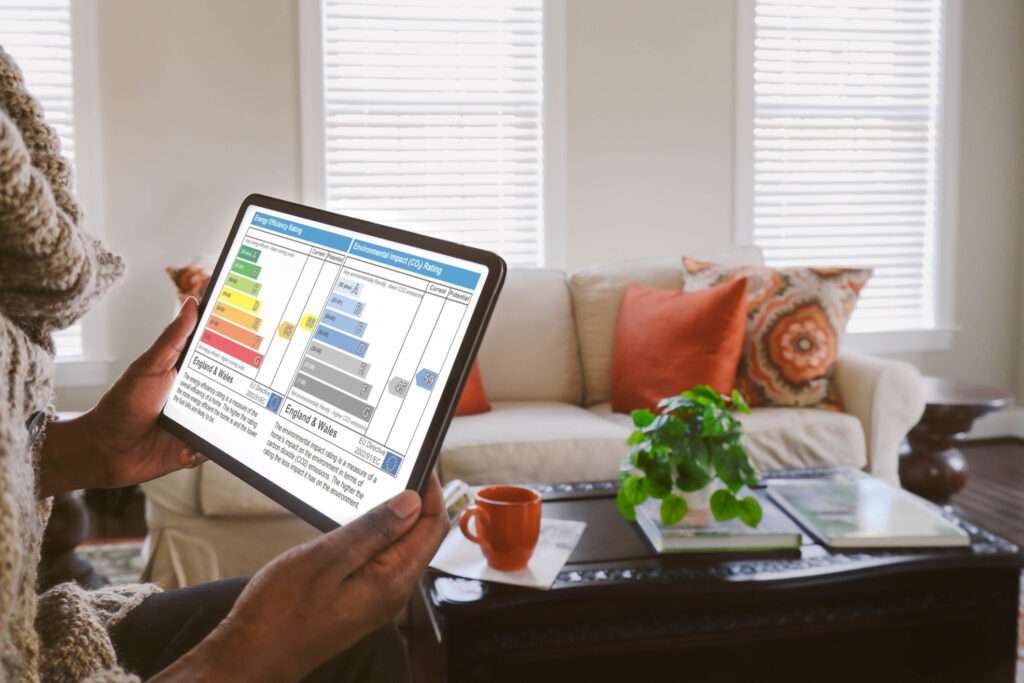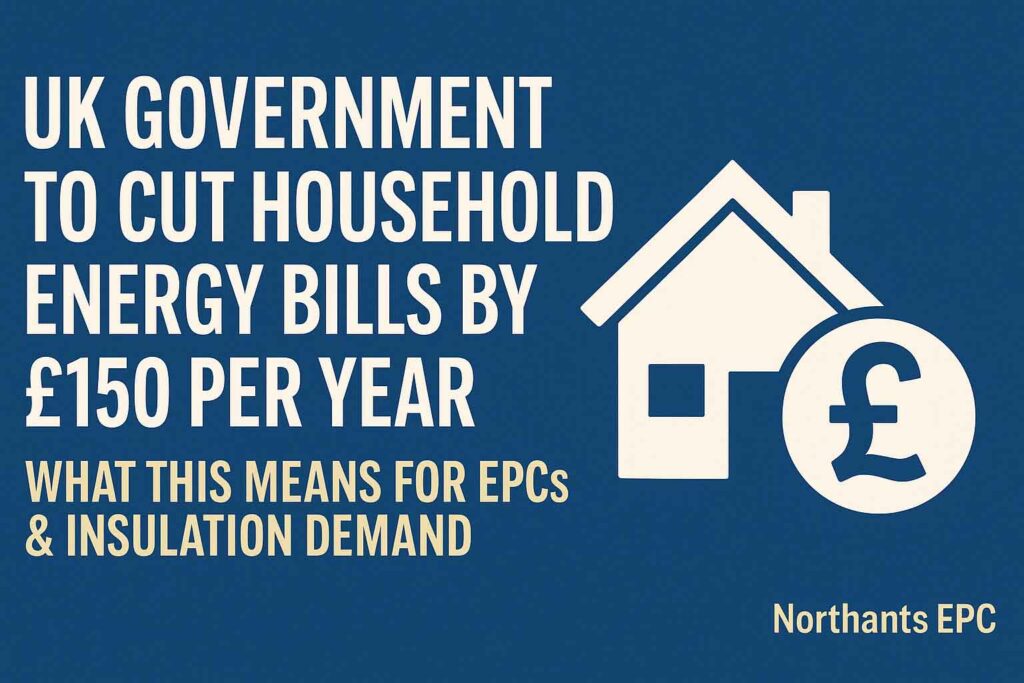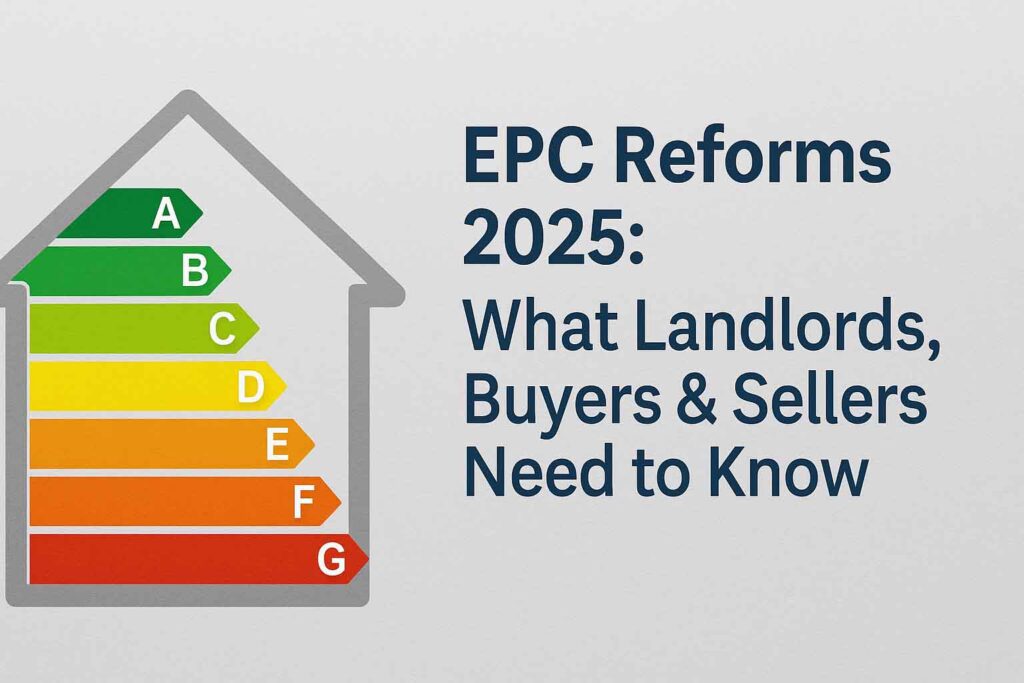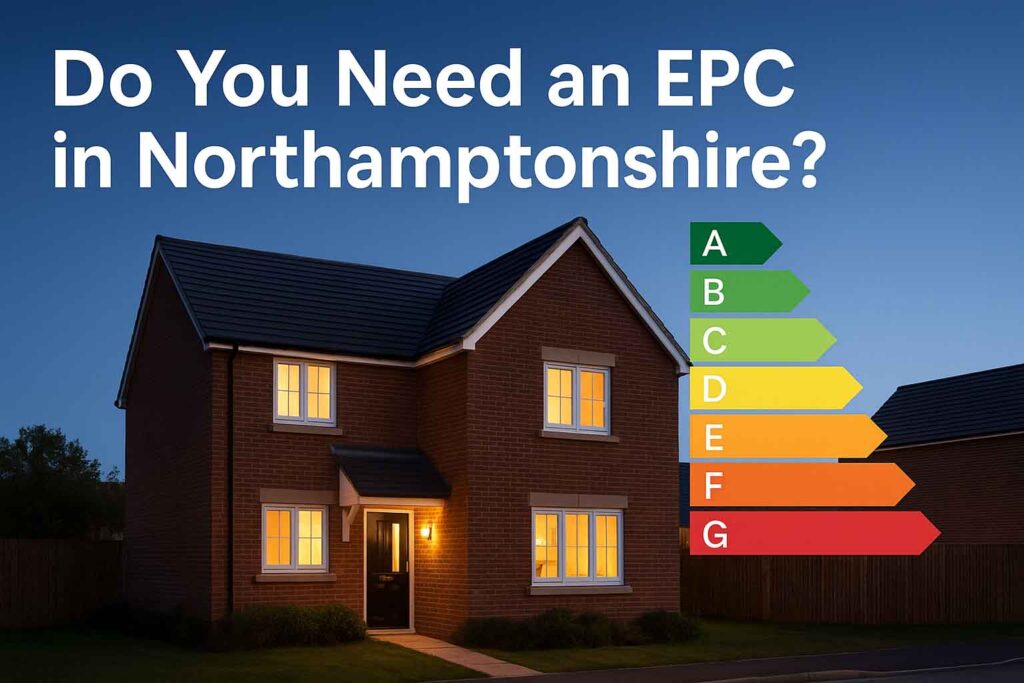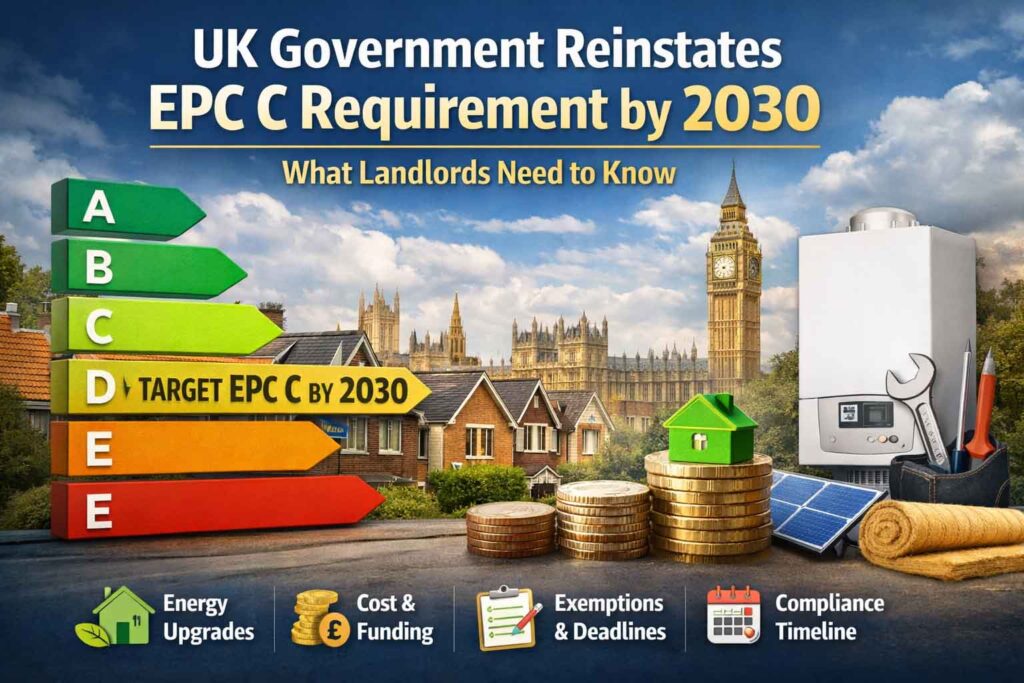To begin with the Assessor will ask a few questions regarding age of property and any extensions and other general information
FAQs
An Energy Performance Certificate, or EPC for short, is a document which details how energy efficient a property is. EPCs have become a legal requirement for all house owners and landlords in the UK. It is very important as a house owner or landlord that you have a valid EPC before you sell or rent out your property to prospective buyers or tenants.
Energy Performance Certificates provide useful information that shows the energy efficiency of a building or property. You can also know in advance about your energy running costs on average for the whole year to come. In this way, you can transform any kind of domestic or not property into a more energy-efficient one.
EPCs show the energy performance of a building on an alphabetical scale of A to G. When a building is given a rating of “A”, it means that such building is highly efficient while buildings with a rating of “G” have very low energy efficiency and are not safe for habitation until such building’s energy efficiency is improved.
It is a legal requirement to have a valid Energy Performance Certificate in order to market your property for sale or rent which applies to both residential and commercial properties. It is now also a requirement to have a valid EPC if your property already has existing tenants in place.
If you are looking to remortgage a property then the majority of lenders will request you have an EPC carried out on the property. How much will an EPC Certificate cost you? Not as much as you think!
If you do not have an Energy Certificate, or if your Energy Certificate has expired, you can be faced with a hefty fine.
In order to avoid these kinds of huge costs, all you need to do is provide an affordable EPC Certificate. More specifically, if you are asked to present the Energy Performance Certificate by an inspector and you fail to do so, you will receive a penalty charge notice and defined action.
The approximate fine for a home is £500, and for other types of properties, it could go as high as £5000.
It’s really simple to find out if you already have an EPC online! All EPC certificates are lodged on the national database. As the certificate is valid for 10 years, many people are unaware when the previous owner had the certificate issued, or simply forget. Checking if you have an EPC online is completely free and doesn’t require an EPC certificate cost.
You can check the EPC online register for Domestic/Residential properties here: find-energy-certificate.digital.communities.gov.uk
For Non-Domestic/Commercial buildings you can check the database here: find-energy-certificate.digital.communities.gov.uk
Energy Performance Certificates are important because they allow prospective buyers and tenants to access the energy efficiency of a building before deciding whether they want to live in such a property.
EPCs are also important because they give suggestions on how to make a building more energy- efficient thus reducing the energy usage of that building.
Since EPCs have become a legal requirement before the sale or renting of buildings can be done, it is important that you know how to get one for your property. To get an Energy Performance Certificate, you will need to hire a professional energy assessor who will inspect the building and conduct an energy assessment of the property.
During the inspection, the energy assessor will have to examine the heating installation in the building as well as other important areas. He might need to take photos and measurements, if necessary.
The examination of the building is not usually a long process. However, the duration depends on the size of the property as well as the speed of the energy assessor.
After the inspection process is complete, the data collected by the assessor during the inspection will be used to draft the Energy Performance Certificate.
Once the survey is finished, the data is uploaded into a software program which then calculates both the current level of energy efficiency and also the potential efficiency rating.
EPC certificate costs are as follows:
- EPC Certificate cost for Studio from £39
- EPC Certificate cost for 1-3 bed from £49
- EPC Certificate cost for 4-5 beds from £59
- EPC Certificate cost for 6+ beds from £69
As you can understand, an EPC Certificate cost is completely affordable and it can raise significantly the value of your property. Thus, doing research about the EPC online, is totally worth your time.
An Energy Performance Certificate survey takes on average anywhere from twenty minutes, for a studio apartment, to an hour for larger family homes. The main determining factor is the size of the property but the layout of the property is also a factor. Commercial, or Non-Domestic surveys can take considerably longer with some large commercial buildings taking a full day or even longer. Note: Time does not affect your EPC Certificate cost.
Next a plan of the outside will be drawn.
During an EPC the following has to be seen and photographed:
The front, rear and side of property
All rooms including basement
The Loft
Your Boiler, or other heating system, and cylinder if applicable
Any proof of insulation and extensions
Showers
Low Energy Lightbulbs
Any proof of conversions age (so it helps to have these ready if possible)
At the end of the survey the surveyor will run through a sample EPC
The EPC certificate will be delivered via PDF within 1 working day, and usually the same day as the survey.
There is a £3 charge if you wish a hardcopy to be sent to your home address, and please allow 7 working days to receive this via royal mail
Photographs are taken for two purposes only:
For the Assessor to refer back to when writing up the survey
For Auditing Purposes. Auditing will be explained to you at the survey and is to ensure a high and accurate standard of work by the DEA
Photos are held for 10 years by law, but are not published on the web. No photos of your personal belongings are taken.
In the case of tenants the photographs are not given to your landlord
- It must contain relevant information about the property’s present energy use as well as its carbon dioxide discharges. This information must be stated using a rating of A (very efficient) to G (least efficient).
- It must also contain the details of the EPC assessor who issued the Energy Performance Certificate for future reference. It should also contain the date the inspection was conducted as well as the date the certificate was issued.
- An overview of the relevant energy structures found on the property.
- It should also have a certificate number which should be easily located at the top of the certificate.
- An EPC Certificate should also have a validity date that tells the exact date the certificate will expire.
- It should also contain suggestions about improvements that ought to be made to increase the energy efficiency of the property.
The Assessor is fully qualified, accredited via Elmhurst Energy and fully ensured. For your peace of mind the Assessor is also CRB checked
In April 2018, Minimum Energy Efficiency Standards came into force in England and Wales. MEES makes it a legal requirement for all privately owned properties to have an EPC rating of at least an ‘E’ before they are let. From April 2020, MEES will be extended to existing lettings of residential property and in April 2023 to existing lettings of commercial property.
These can include some listed buildings, places of worship, temporary properties, some HMOs (House of Multiple Occupancy) and holidays lets.
Since it was first introduced in England and Wales in 2006, the EPC is now a legal requirement for a building to be sold, let or constructed. Once the Energy Performance Certificate is issued, it is the owner or landlord’s responsibility to keep it up-to-date.
If you choose to use an estate agent to market the property, they must include a copy of the EPC report in all commercial advertisements such as a brochure and website, etc. With a new building, the builder in charge of the construction is responsible for producing the Energy Certificate. If you choose to market privately, the EPC is still a legal requirement for both sales and lettings.
Improving your EPC rating can make a significant difference to the value of your property, as well as the ongoing costs, due to savings on energy.
Our assessors are happy to advise on the steps that you can take to improve the EPC rating of your home, therefore, it is advisable to instruct an EPC long before you plan to rent or sell your property, to allow time to make any improvements, should you wish.
If you have any other questions, please feel free to contact us directly any time
